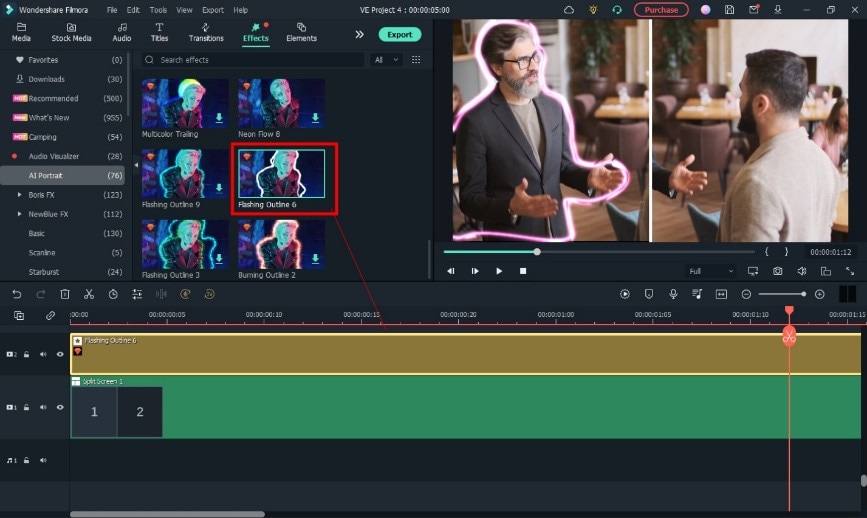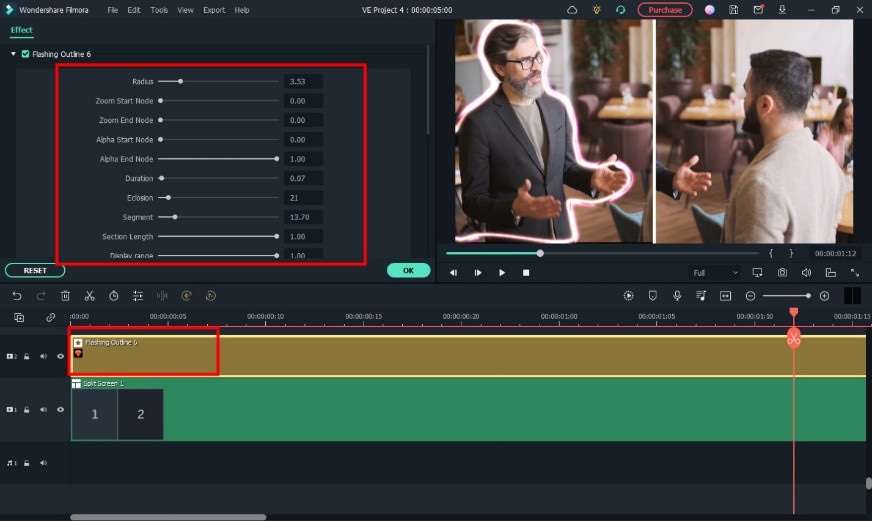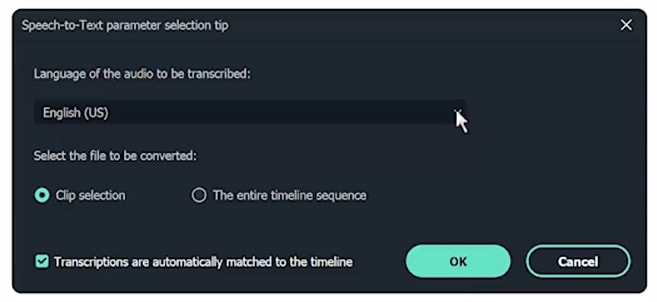
"Narrative Wordsmithing Weaving a Story Through Speech for 2024"

Narrative Wordsmithing: Weaving a Story Through Speech
Hello Guys, if you are the one who loves watching movies and films, then there is one question that you’ve undoubtedly wondered about. That’s about the film’s scripting, which is the way of writing a movie script or the writing used in Films scripts. Today’s article will discuss the most commonly used script writing types, Dialogue Script and Narrative Script. And the best five tips to follow for a fantastic script with Dialogue and Narrative Script examples. Let’s look into it!
- Pay attention to the conversations in your real life
- Let each character have its voice and characteristics. Not a second you
- No meaningless or only question-and-answer type dialogue
- Control the rhythm of the conversations
- Don’t use full sentences that contain too much underlying meaning
Part 1. What is Dialogue and Narrative Script?
Definition
The Narrative Script is a story. It consists of the whole narration of the story by the writer. On the other hand, Dialogue Script is the talk between the characters. So you can say that the entire story of the script is Narrative writing and the discussions between characters are Dialogues.
Key Features
Both these types of script writing are essential to writing a successful storyline. At the same time, we use Dialogues in nearly every script. The Narrative Script is a vital type, especially if you want to make your storyline even more precise and exciting.
Part 2. Five Tips for Writing Dialogue and Narrative Scripts
Now here are some essential tips for writing fantastic Dialogue and Narrative Scripts.
1. Pay attention to the conversations in your real life
One of the best tips for good scripting is to be natural; for it, you can look and take inspiration from your real life. Just note the behavior of people and the progress of the world around you. Record these experiences, which will help you provide a natural touch in your script.
2. Let each character have its voice and characteristics. Not a second you
Sometimes when we write, we lose our concentration and write all the characters’ dialogue in the same way. But it’s not good because a good script always has consistency from start to end. You must write each character’s dialogues in their own way and expression.
3. No meaningless or only question-and-answer type dialogue
If your dialogue script is only comprised of questions and answers, keep in mind that it won’t be very interesting. Moreover, we sometimes compose talks that are meaningless, which is another serious issue. Focus on writing conversation in a balanced manner with meaningful usage to overcome these problems.
4. Control the rhythm of the conversations
Controlling the conversation is one of the essential tips. Primarily, our actual conversation doesn’t complete. It means that we mix it with other dialogues without proper punctuation. Be careful about punctuation while writing conversations.
5. Don’t use full sentences that contain too much underlying meaning
Whenever you read something, you’ll lose interest in it if the writer uses full and long sentences a lot. Because, in reality, it seems robotic. On the other hand, some writers don’t use full sentences and keep them short. Their story seems more interesting because it’s a long-established fact that using full sentences, especially in script writing, distracts the audience, and they become bored.
Part 3. Best dialogue and narrative examples from movies
Check out the examples below of how great dialogue has impacted movies as an essential component of the script.
1. The Man from Earth
Professor John Oldman’s farewell party turns into a mysterious and interesting debate among colleagues after he asked strange question. It’s an audio movie, but probably more like a stage play, that is, a single scene with multiple characters. Everyone gave their opinion on a single issue.
The reason for introducing this movie as the first example is that the screenwriter provided a perfect example. He showed you how to control a debate or discussion in a movie.
2. Before Sunrise
This movie teaches you how to explore the relationship between two characters in a single scene and through dialogue by focusing on their interaction.
Although sounding cinematically natural, the conversation in the movie is absolutely real. They interrupt each other. Their thoughts follow different paths through different tangents.
3. Pulp Fiction
Films by Quentin Tarantino are notable for their dialogue. This is because he will not really waste any words when writing. Every word spoken has a function. He builds humor without making jokes. He calmly creates tension before exploding with menacing rage.
Part 4. Make your dialogue script come true using Filmora
If you follow the advice given above and complete a dialogue or narrative script. It’s time to move on to the next step, make your script come true using the Wondershare Filmora . First, shoot your video with best dialogue or narrative plot.
Free Download For Win 7 or later(64-bit)
Free Download For macOS 10.14 or later
Step1Now Visit the Wondershare Filmora Website and Click the Download Make sure the installation is complete, then you can create a New Project.

Step2After uploading your video clips, you can use the split screen feature to make your video more dynamic. To do this, Click the arrow (>>) button, then select split screen. Select any split collage you like, then drag and drop to add it.

Step3Besides, tap on the Effects option to select AI Portraits and choose any effect to make your video more fantastic.

Step4And you can adjust the effects settings. Just double-click to open setting options.

Step5Don’t want to type subtitles word by word? Then try out Filmora’s strong feature Speech-to-Text. With just one click, you may convert voice to subtitles. By using speech-to-text, you can greatly reduce the time spent transcribing subtitles and increase the effectiveness of your editing.

Up to 16 different languages can be transcribed using Filmora. Filmora can translate any language, whether you speak English, Japanese, French, or another one.
Step6It is typically advised to select the most basic style for movie subtitles. After you’re done, click Export, pick your preferred video format, and then click Download. Now your fantastic script video is successfully saved on your device.
Conclusion
In conclusion, Dialogue and Narrative Script are the most common types of script writing. The Dialogue script is nearly an essential part of every script. The Narrative Script is mainly the base for stories, films, etc. Both have their importance and key features. All you have to do while writing is to remember the best five tips and learn from the examples, I have shared with you. To develop an appealing dialogue script, improve your skills and practice. Also, we strongly recommend using Wondershare Filmora to create the final film from your dialogue and narrative script. Thanks for Reading.
Part 1. What is Dialogue and Narrative Script?
Definition
The Narrative Script is a story. It consists of the whole narration of the story by the writer. On the other hand, Dialogue Script is the talk between the characters. So you can say that the entire story of the script is Narrative writing and the discussions between characters are Dialogues.
Key Features
Both these types of script writing are essential to writing a successful storyline. At the same time, we use Dialogues in nearly every script. The Narrative Script is a vital type, especially if you want to make your storyline even more precise and exciting.
Part 2. Five Tips for Writing Dialogue and Narrative Scripts
Now here are some essential tips for writing fantastic Dialogue and Narrative Scripts.
1. Pay attention to the conversations in your real life
One of the best tips for good scripting is to be natural; for it, you can look and take inspiration from your real life. Just note the behavior of people and the progress of the world around you. Record these experiences, which will help you provide a natural touch in your script.
2. Let each character have its voice and characteristics. Not a second you
Sometimes when we write, we lose our concentration and write all the characters’ dialogue in the same way. But it’s not good because a good script always has consistency from start to end. You must write each character’s dialogues in their own way and expression.
3. No meaningless or only question-and-answer type dialogue
If your dialogue script is only comprised of questions and answers, keep in mind that it won’t be very interesting. Moreover, we sometimes compose talks that are meaningless, which is another serious issue. Focus on writing conversation in a balanced manner with meaningful usage to overcome these problems.
4. Control the rhythm of the conversations
Controlling the conversation is one of the essential tips. Primarily, our actual conversation doesn’t complete. It means that we mix it with other dialogues without proper punctuation. Be careful about punctuation while writing conversations.
5. Don’t use full sentences that contain too much underlying meaning
Whenever you read something, you’ll lose interest in it if the writer uses full and long sentences a lot. Because, in reality, it seems robotic. On the other hand, some writers don’t use full sentences and keep them short. Their story seems more interesting because it’s a long-established fact that using full sentences, especially in script writing, distracts the audience, and they become bored.
Part 3. Best dialogue and narrative examples from movies
Check out the examples below of how great dialogue has impacted movies as an essential component of the script.
1. The Man from Earth
Professor John Oldman’s farewell party turns into a mysterious and interesting debate among colleagues after he asked strange question. It’s an audio movie, but probably more like a stage play, that is, a single scene with multiple characters. Everyone gave their opinion on a single issue.
The reason for introducing this movie as the first example is that the screenwriter provided a perfect example. He showed you how to control a debate or discussion in a movie.
2. Before Sunrise
This movie teaches you how to explore the relationship between two characters in a single scene and through dialogue by focusing on their interaction.
Although sounding cinematically natural, the conversation in the movie is absolutely real. They interrupt each other. Their thoughts follow different paths through different tangents.
3. Pulp Fiction
Films by Quentin Tarantino are notable for their dialogue. This is because he will not really waste any words when writing. Every word spoken has a function. He builds humor without making jokes. He calmly creates tension before exploding with menacing rage.
Part 4. Make your dialogue script come true using Filmora
If you follow the advice given above and complete a dialogue or narrative script. It’s time to move on to the next step, make your script come true using the Wondershare Filmora . First, shoot your video with best dialogue or narrative plot.
Free Download For Win 7 or later(64-bit)
Free Download For macOS 10.14 or later
Step1Now Visit the Wondershare Filmora Website and Click the Download Make sure the installation is complete, then you can create a New Project.

Step2After uploading your video clips, you can use the split screen feature to make your video more dynamic. To do this, Click the arrow (>>) button, then select split screen. Select any split collage you like, then drag and drop to add it.

Step3Besides, tap on the Effects option to select AI Portraits and choose any effect to make your video more fantastic.

Step4And you can adjust the effects settings. Just double-click to open setting options.

Step5Don’t want to type subtitles word by word? Then try out Filmora’s strong feature Speech-to-Text. With just one click, you may convert voice to subtitles. By using speech-to-text, you can greatly reduce the time spent transcribing subtitles and increase the effectiveness of your editing.

Up to 16 different languages can be transcribed using Filmora. Filmora can translate any language, whether you speak English, Japanese, French, or another one.
Step6It is typically advised to select the most basic style for movie subtitles. After you’re done, click Export, pick your preferred video format, and then click Download. Now your fantastic script video is successfully saved on your device.
Conclusion
In conclusion, Dialogue and Narrative Script are the most common types of script writing. The Dialogue script is nearly an essential part of every script. The Narrative Script is mainly the base for stories, films, etc. Both have their importance and key features. All you have to do while writing is to remember the best five tips and learn from the examples, I have shared with you. To develop an appealing dialogue script, improve your skills and practice. Also, we strongly recommend using Wondershare Filmora to create the final film from your dialogue and narrative script. Thanks for Reading.
Also read:
- [New] Top Game Screens for PS5 and Xbox Series X Revealed for 2024
- [Updated] Memes that Spark Global Conversation
- [Updated] Premier Stop-Motion Works The Ultimate 15 Selection
- 2024 Approved IPhones in Action Capturing & Altering Slow Motion Content
- 2024 Approved Kickstart a Successful Charity Contest via Social Media
- 2024 Approved Prime Monitors Ranked for PS5 Gameplay
- Best Free Video Merging Applications: Top 10 Picks for Quick Editing
- Cloud Tech Investment Priority in Singapore's IT Budget: An Overview by ZDNet
- In 2024, High-Def Showdown Top 8K TVs Rated and Reviewed
- Mobile Masterpieces The Ultimate List of Facial Enhancers (iOS/Android) for 2024
- Pokémon Go Cooldown Chart On Xiaomi 13 Ultra | Dr.fone
- The Ultimate Fix for libeay32.dll Errors: A Step-by-Step Solution for System Stability
- The Ultimate Sound Design Editing Your Podcasts in GarageBand for 2024
- Title: Narrative Wordsmithing Weaving a Story Through Speech for 2024
- Author: David
- Created at : 2024-12-28 21:52:56
- Updated at : 2025-01-05 02:10:35
- Link: https://extra-guidance.techidaily.com/narrative-wordsmithing-weaving-a-story-through-speech-for-2024/
- License: This work is licensed under CC BY-NC-SA 4.0.